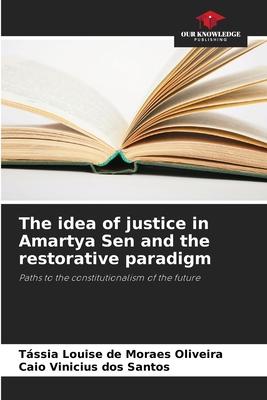Restorative justice is an emerging model of criminal justice, originating from the confluence of penal abolitionism and victimology, which proposes a new approach to conflicts caused by crime, with the aim of repairing the relationships affected by the criminal offence. Starting from this initial premise, this paper aims to investigate the complexity of the idea of justice proposed by Amartya Sen, relating it to the restorative model. Likewise, it sought to examine the dialogue between contemporary Brazilian constitutionalism and the idea of justice and the emerging model of criminal justice. To this end, the hypothetical-deductive and propositional legal method was used, by means of a bibliographical survey and analysis of the literature specialising in the subject. In addition, the relationship between constitutionally guaranteed values and the realisation of justice was examined, in such a way that it requires the introduction of new practices, such as restorative justice, in order to foster a different perspective on the construction of the idea of justice through a criminal policy linked to the propositions of neoconstitutionalism.
| FindBook |
有 1 項符合
The idea of justice in Amartya Sen and the restorative paradigm的圖書 |
 |
The idea of justice in Amartya Sen and the restorative paradigm 作者:de Moraes Oliveira 出版社:Our Knowledge Publishing 出版日期:2024-03-24 語言:英文 規格:平裝 / 80頁 / 22.86 x 15.24 x 0.48 cm / 普通級/ 初版 |
| 圖書館借閱 |
| 國家圖書館 | 全國圖書書目資訊網 | 國立公共資訊圖書館 | 電子書服務平台 | MetaCat 跨館整合查詢 |
| 臺北市立圖書館 | 新北市立圖書館 | 基隆市公共圖書館 | 桃園市立圖書館 | 新竹縣公共圖書館 |
| 苗栗縣立圖書館 | 臺中市立圖書館 | 彰化縣公共圖書館 | 南投縣文化局 | 雲林縣公共圖書館 |
| 嘉義縣圖書館 | 臺南市立圖書館 | 高雄市立圖書館 | 屏東縣公共圖書館 | 宜蘭縣公共圖書館 |
| 花蓮縣文化局 | 臺東縣文化處 |
|
|
圖書介紹 - 資料來源:博客來 評分:
圖書名稱:The idea of justice in Amartya Sen and the restorative paradigm
|









